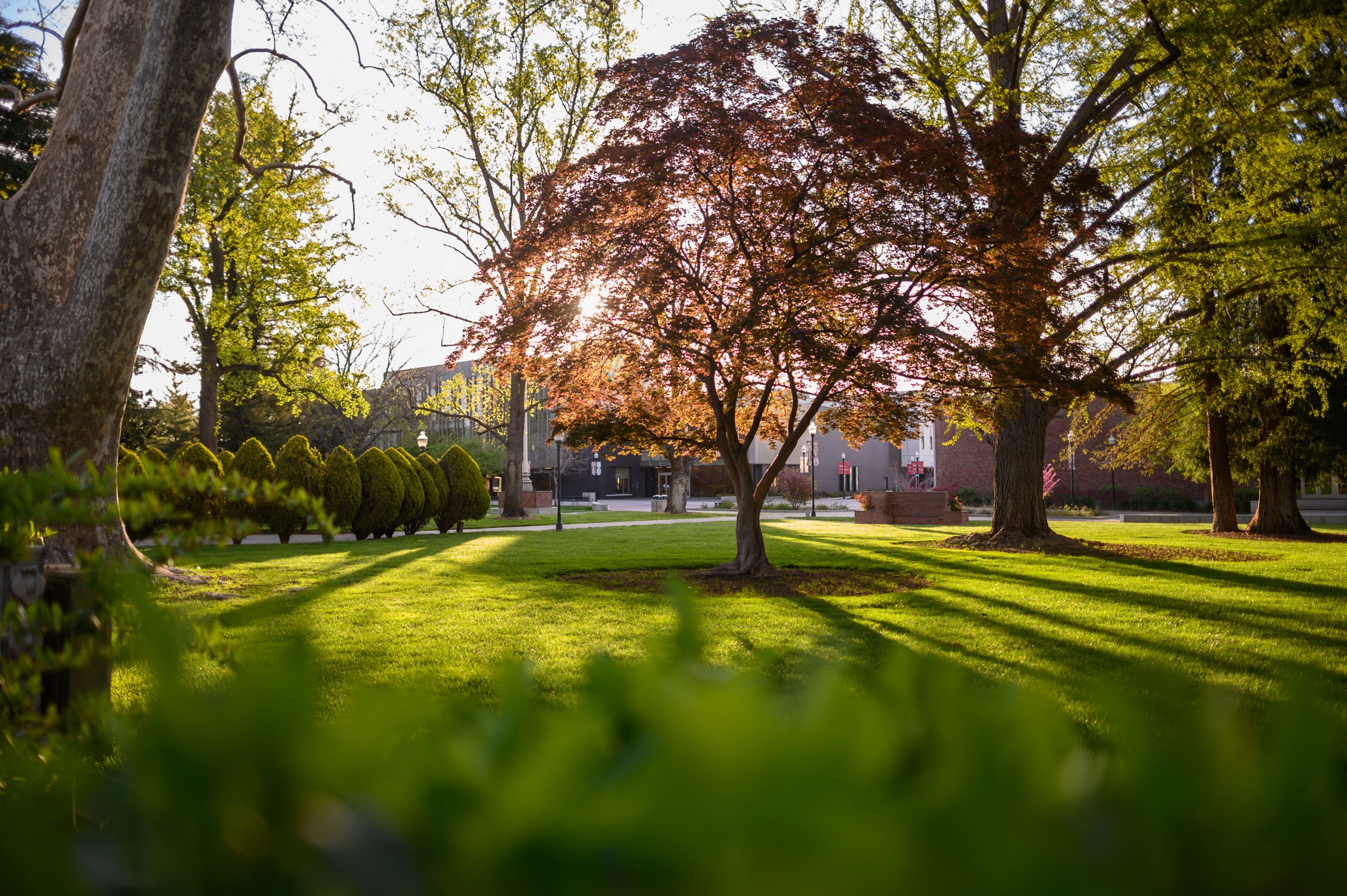A Lasting Commitment to Being Anti-Racist

An early morning view of the Kendall Hall lawn on Friday, March 27, 2020 in Chico, Calif. Chico State has moved to virtual delivery of instruction and most services for the remainder of the spring semester. (Jason Halley/University Photographer/CSU, Chico)
As we turn the page of our calendars from February to March, I hope you will keep Black history close to you and allow it to inform all that you do, and I encourage you to press forward in your journey to becoming an anti-racist. I know I will.
I’m sure we agree that relegating Black history to one month each year is less than adequate if we are truly serious about combatting racism and ending violence against Black and brown people in this country. Black history is American history. It is made every day and woven deeply into the American culture and life.
As I prepared to write this column, I found myself once again pondering that important question: What does being anti-racist mean to me as a person and as president of Chico State? I thought about you, too, and how you might answer this question for yourself and for our campus community.
We have been striving to create a more equitable University for years. This year we refocused our questions using Ibram X. Kendi’s book How to Be an Antiracist. Now that we are well into the spring semester, I don’t want us to finish this academic year and then retire our Book in Common to a bookshelf with the satisfaction of a good read. I want us to carry the concepts of racial equity and justice with us always as a reminder and impetus for growth as anti-racists and progress for institutional change at Chico State.
With authenticity of self, compassion for others, and courage of heart, let’s face the unrest and turbulent nature of these times and recommit our efforts to paving more equitable paths for our students and their success now and into the future.
My reflections compelled me to re-read and further ponder chapters 17 and 18 of Kendi’s book, entitled “Failure” and “Success.” It was in “Failure” where I found guidance for this column. Kendi began the chapter by saying, “To understand why racism lives is to understand the history of anti-racist failure—why people have failed to create anti-racist societies.”
He goes on to remind us that many strategies and solutions tried over the years have relied on educating people and changing behaviors. While those efforts have increased awareness and sensitivity to racist acts, they have failed to create a more just and equitable society. For Kendi, our failure as a country has been our overall inability to realize that conception of race as a social construct is inextricably linked with power and policy.
For me, Kendi’s points are salient as I consider the equity and diversity work we have done at Chico State over decades. Much of our work has focused on education and awareness with the intent to eliminate racist stereotypes and behaviors, and build cultural awareness and competencies. Our efforts, though well intended, have not gone far enough, mostly because we have stayed focused on changing minds rather than changing campus policies and practices.
Until now.
I say that because focusing on Equity, Diversity and Inclusion as our number one University strategic priority has been a monumental step in expanding our efforts from changing minds to changing campus policies and practices, and holding ourselves accountable as we do so. I encourage you to read about our campus efforts on the Equity, Diversity, and Inclusion website where you will find our Anti-racist Campus Commitments for academic year 2020–21 which include:
- Striving to increase faculty diversity by 1% per year to better reflect the student demographics by 2030;
- Charging a Presidential Task Force with examining existing campus policing and public safety policies and practices, and thinking creatively about the most positive ways that the UPD can be fully integrated into the campus community; and
- Conducting an equity audit to review the University executive memoranda, identify racist policies, and propose modifications for review and consideration by the Academic Senate in the 2020–21 and 2021–22 academic years.
In closing, Kendi’s thesis reminded me of one of Dr. Martin Luther King Jr.’s important addresses delivered at the 11th annual Southern Christian Leadership Conference in 1967, “Where will we go from here?”
Where will Chico State go from here? We will continue our institutional journey toward becoming an anti-racist community where inclusivity, equity, and justice are enjoyed by all students, faculty, and staff, especially those who identify as Black or as people of color. Our efforts will stay at the forefront of everything we do as we move with a singular purpose, student success. I agree emphatically with King as he said,
“Now, we got to get this thing right. What is needed is a realization that power without love is reckless and abusive, and that love without power is sentimental and anemic. Power at its best is love implementing the demands of justice, and justice at its best is love correcting everything that stands against love…”
—Dr. Martin Luther King, Jr., 1967
Onward, together!



